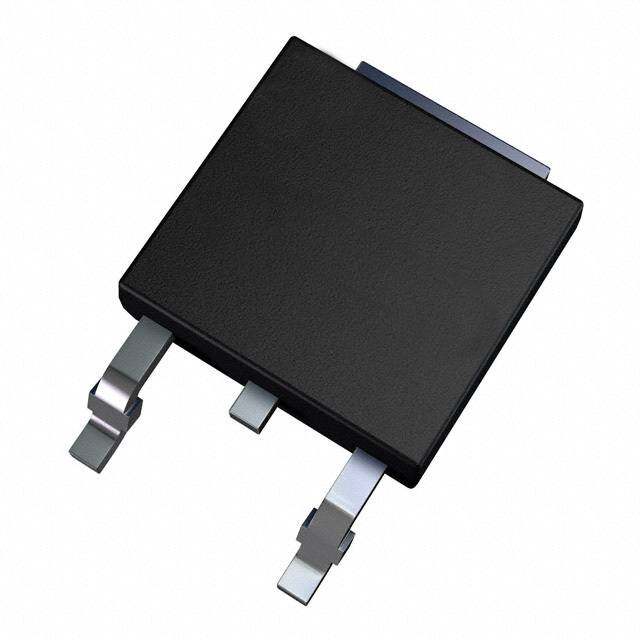ICGOO在线商城 > 分立半导体产品 > 晶体管 - UGBT,MOSFET - 单 > NGTB20N120IHRWG
- 型号: NGTB20N120IHRWG
- 制造商: ON Semiconductor
- 库位|库存: xxxx|xxxx
- 要求:
| 数量阶梯 | 香港交货 | 国内含税 |
| +xxxx | $xxxx | ¥xxxx |
查看当月历史价格
查看今年历史价格
NGTB20N120IHRWG产品简介:
ICGOO电子元器件商城为您提供NGTB20N120IHRWG由ON Semiconductor设计生产,在icgoo商城现货销售,并且可以通过原厂、代理商等渠道进行代购。 NGTB20N120IHRWG价格参考。ON SemiconductorNGTB20N120IHRWG封装/规格:晶体管 - UGBT,MOSFET - 单, IGBT 沟槽型场截止 1200V 40A 384W 通孔 TO-247。您可以下载NGTB20N120IHRWG参考资料、Datasheet数据手册功能说明书,资料中有NGTB20N120IHRWG 详细功能的应用电路图电压和使用方法及教程。
| 参数 | 数值 |
| 25°C时Td(开/关)值 | -/235ns |
| 产品目录 | |
| Current-CollectorPulsed(Icm) | 120A |
| 描述 | IGBT 1200V 40A 384W TO247IGBT 晶体管 1200V/20A RC IGBT FSII |
| 产品分类 | IGBT - 单路分离式半导体 |
| GateCharge | 225nC |
| IGBT类型 | 沟道和场截止 |
| 品牌 | ON Semiconductor |
| 产品手册 | |
| 产品图片 |
|
| rohs | 符合RoHS无铅 / 符合限制有害物质指令(RoHS)规范要求 |
| 产品系列 | 晶体管,IGBT 晶体管,ON Semiconductor NGTB20N120IHRWG- |
| mouser_ship_limit | 该产品可能需要其他文件才能进口到中国。 |
| 数据手册 | |
| 产品型号 | NGTB20N120IHRWG |
| SwitchingEnergy | 450µJ (关) |
| TestCondition | 600V,20A,10 欧姆,15V |
| 不同 Vge、Ic时的 Vce(on) | 2.45V @ 15V,20A |
| 产品种类 | IGBT 晶体管 |
| 供应商器件封装 | TO-247 |
| 其它名称 | NGTB20N120IHRWGOS |
| 功率-最大值 | 384W |
| 功率耗散 | 384 W |
| 包装 | 管件 |
| 反向恢复时间(trr) | - |
| 商标 | ON Semiconductor |
| 在25C的连续集电极电流 | 40 A |
| 安装类型 | 通孔 |
| 安装风格 | Through Hole |
| 封装 | Tube |
| 封装/外壳 | TO-247-3 |
| 封装/箱体 | TO-247 |
| 工厂包装数量 | 30 |
| 最大工作温度 | + 175 C |
| 最小工作温度 | - 55 C |
| 栅极/发射极最大电压 | 20 V |
| 栅极—射极漏泄电流 | 100 nA |
| 标准包装 | 30 |
| 电压-集射极击穿(最大值) | 1200V |
| 电流-集电极(Ic)(最大值) | 40A |
| 系列 | NGTB20N120IHR |
| 输入类型 | 标准 |
| 配置 | Single |
| 集电极—发射极最大电压VCEO | 1200 V |
| 集电极—射极饱和电压 | 2.1 V |

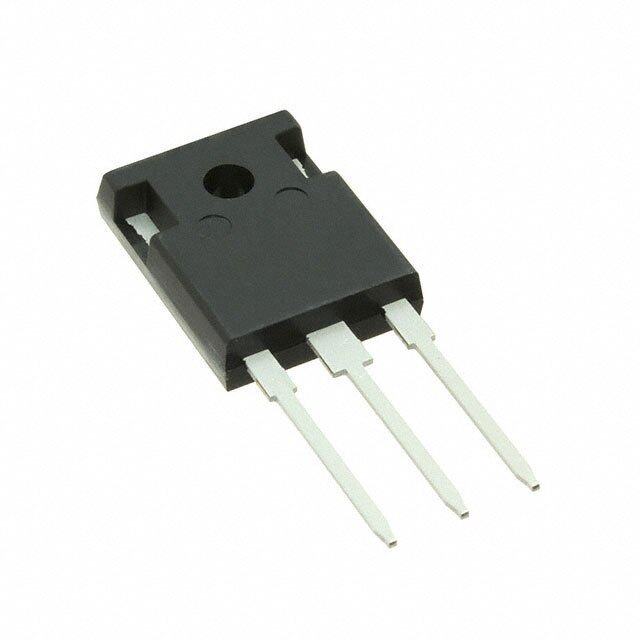

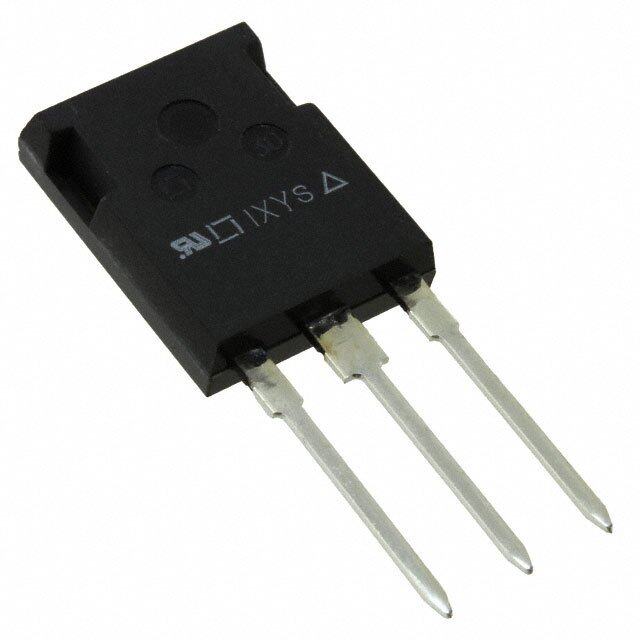
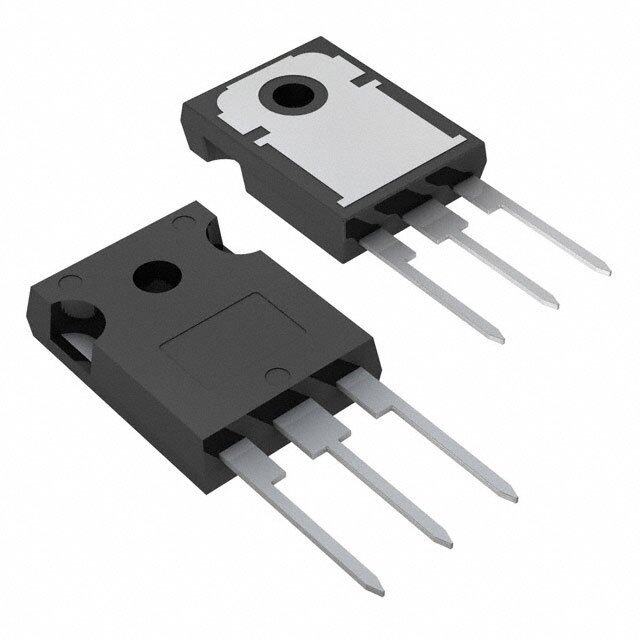
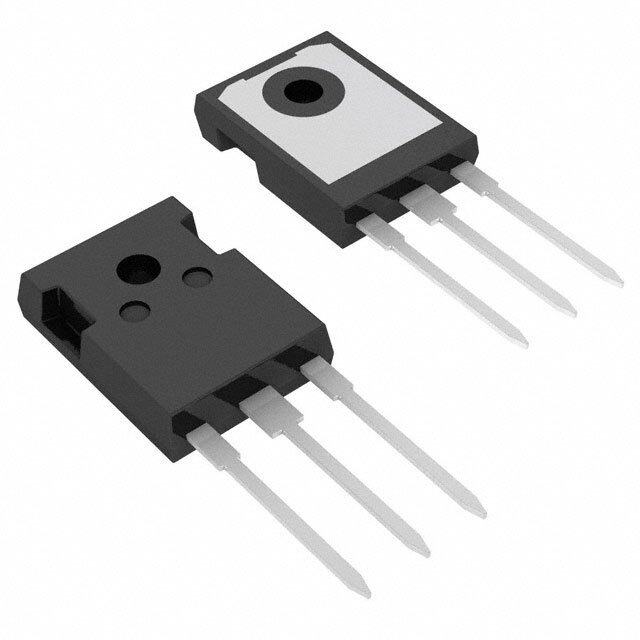
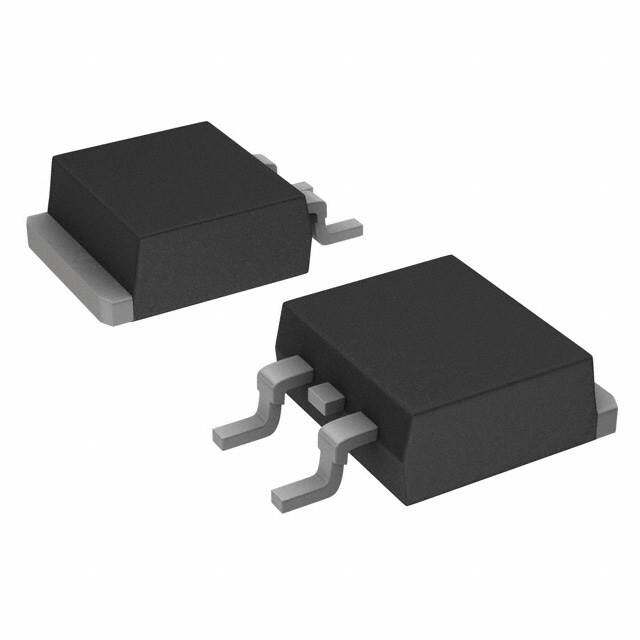

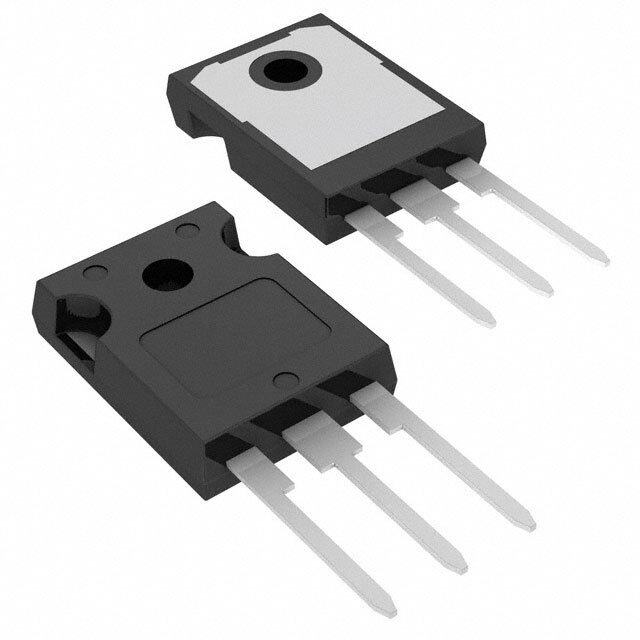

- 商务部:美国ITC正式对集成电路等产品启动337调查
- 曝三星4nm工艺存在良率问题 高通将骁龙8 Gen1或转产台积电
- 太阳诱电将投资9.5亿元在常州建新厂生产MLCC 预计2023年完工
- 英特尔发布欧洲新工厂建设计划 深化IDM 2.0 战略
- 台积电先进制程称霸业界 有大客户加持明年业绩稳了
- 达到5530亿美元!SIA预计今年全球半导体销售额将创下新高
- 英特尔拟将自动驾驶子公司Mobileye上市 估值或超500亿美元
- 三星加码芯片和SET,合并消费电子和移动部门,撤换高东真等 CEO
- 三星电子宣布重大人事变动 还合并消费电子和移动部门
- 海关总署:前11个月进口集成电路产品价值2.52万亿元 增长14.8%
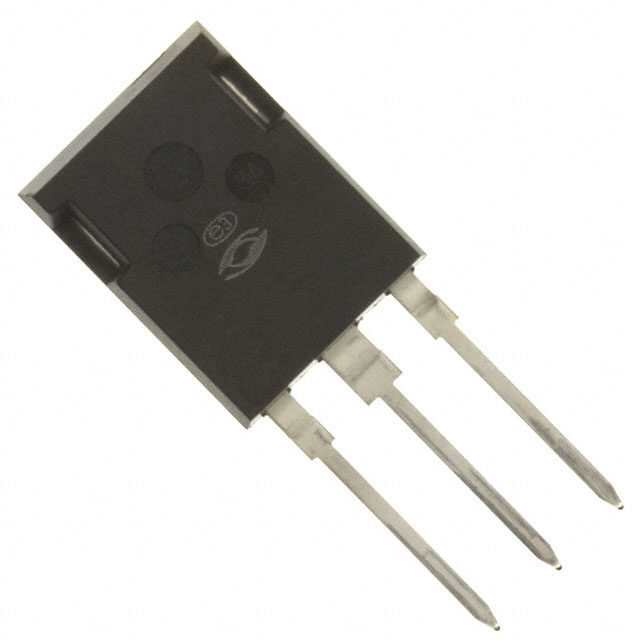
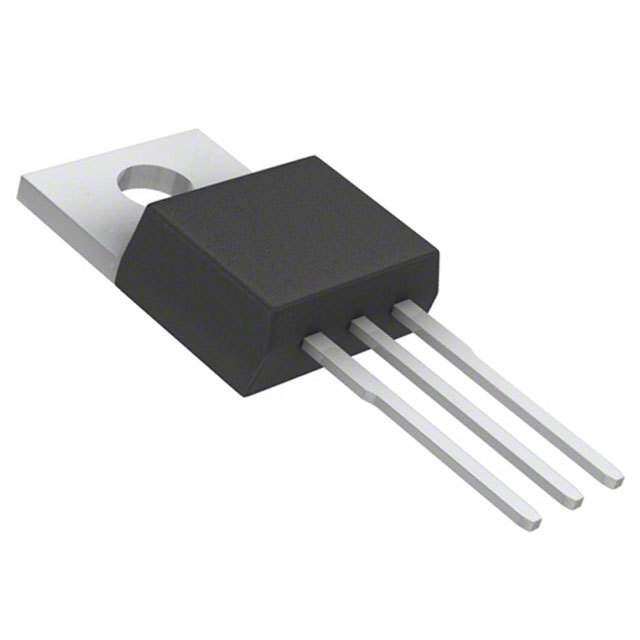


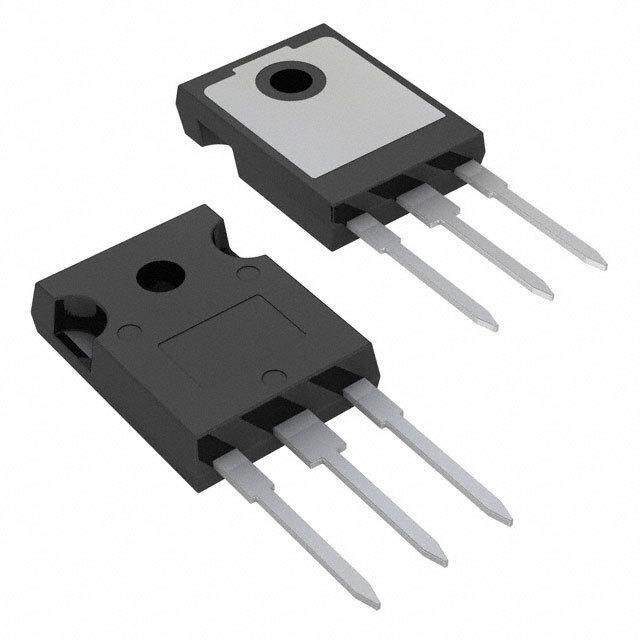
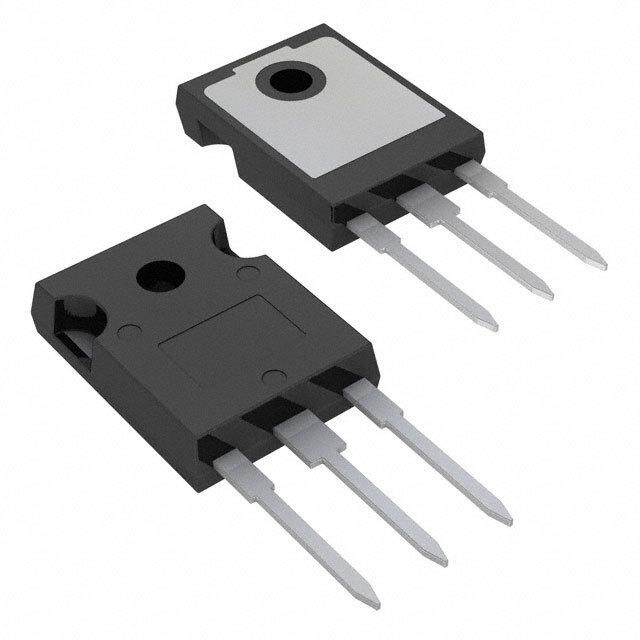

PDF Datasheet 数据手册内容提取
NGTB20N120IHRWG IGBT with Monolithic Free Wheeling Diode This Insulated Gate Bipolar Transistor (IGBT) features a robust and cost effective Field Stop (FS) Trench construction, provides and superior performance in demanding switching applications, and offers low on−state voltage with minimal switching loss. The IGBT is well http://onsemi.com suited for resonant or soft switching applications. 20 A, 1200 V Features • Extremely Efficient Trench with Fieldstop Technology VCEsat = 2.10 V • Low Switching Loss Reduces System Power Dissipation E = 0.45 mJ off • Optimized for Low Losses in IH Cooker Application • Reliable and Cost Effective Single Die Solution C • These are Pb−Free Devices Typical Applications • Inductive Heating G • Consumer Appliances • Soft Switching E ABSOLUTE MAXIMUM RATINGS Rating Symbol Value Unit Collector−emitter voltage @ TJ = 25°C VCES 1200 V Collector current I A C @ TC = 25°C 40 @ TC = 100°C 20 G TO−247 C Pulsed collector current, Tpulse ICM 120 A E CASE 340AL limited by TJmax, 10 (cid:2)s Pulse, VGE = 15 V Diode forward current I A F @ TC = 25°C 40 MARKING DIAGRAM @ TC = 100°C 20 Diode pulsed current, Tpulse limited IFM 120 A by TJmax, 10 (cid:2)s Pulse, VGE = 0 V Gate−emitter voltage V (cid:2)20 V GE Transient Gate−emitter voltage (cid:2)25 (Tpulse = 5 (cid:2)s, D < 0.10) 20N120IHR AYWWG Power Dissipation P W D @ TC = 25°C 384 @ TC = 100°C 192 Operating junction temperature TJ −40 to +175 °C range Storage temperature range Tstg −55 to +175 °C Lead temperature for soldering, 1/8” TSLD 260 °C A = Assembly Location from case for 5 seconds Y = Year WW = Work Week Stresses exceeding Maximum Ratings may damage the device. Maximum G = Pb−Free Package Ratings are stress ratings only. Functional operation above the Recommended Operating Conditions is not implied. Extended exposure to stresses above the Recommended Operating Conditions may affect device reliability. ORDERING INFORMATION Device Package Shipping NGTB20N120IHRWG TO−247 30 Units / Rail (Pb−Free) © Semiconductor Components Industries, LLC, 2013 1 Publication Order Number: October, 2013 − Rev. 1 NGTB20N120IHR/D
NGTB20N120IHRWG THERMAL CHARACTERISTICS Rating Symbol Value Unit Thermal resistance junction−to−case R(cid:3)JC 0.39 °C/W Thermal resistance junction−to−ambient R(cid:3)JA 40 °C/W ELECTRICAL CHARACTERISTICS (TJ = 25°C unless otherwise specified) Parameter Test Conditions Symbol Min Typ Max Unit STATIC CHARACTERISTIC Collector−emitter breakdown voltage, VGE = 0 V, IC = 500 (cid:2)A V(BR)CES 1200 − − V gate−emitter short−circuited Collector−emitter saturation voltage VGE = 15 V, IC = 20 A VCEsat − 2.10 2.45 V VGE = 15 V, IC = 20 A, TJ = 175°C − 2.30 − Gate−emitter threshold voltage VGE = VCE, IC = 250 (cid:2)A VGE(th) 4.5 5.5 6.5 V Collector−emitter cut−off current, gate− VGE = 0 V, VCE = 1200 V ICES − − 0.2 mA emitter short−circuited VGE = 0 V, VCE = 1200 V, TJ = 175°C − − 2.8 Gate leakage current, collector−emitter VGE = 20 V, VCE = 0 V IGES − − 100 nA short−circuited DYNAMIC CHARACTERISTIC Input capacitance Cies − 5320 − pF Output capacitance VCE = 20 V, VGE = 0 V, f = 1 MHz Coes − 124 − Reverse transfer capacitance Cres − 100 − Gate charge total Qg − 225 − nC Gate to emitter charge VCE = 600 V, IC = 20 A, VGE = 15 V Qge − 36 − Gate to collector charge Qgc − 98 − SWITCHING CHARACTERISTIC, INDUCTIVE LOAD Turn−off delay time TJ = 25°C td(off) − 235 − ns Fall time VCC = R6g0 0= V1,0 I C(cid:4) = 20 A tf − 155 − Turn−off switching loss VGE = 0 V/ 15V Eoff − 0.45 − mJ Turn−off delay time TJ = 150°C td(off) − 255 − ns Fall time VCC = R6g0 0= V1,0 I C(cid:4) = 20 A tf − 250 − Turn−off switching loss VGE = 0 V/ 15V Eoff − 1.10 − mJ DIODE CHARACTERISTIC Forward voltage VGE = 0 V, IF = 20 A VF − 1.75 2.10 V VGE = 0 V, IF = 20 A, TJ = 175°C − 2.50 http://onsemi.com 2
NGTB20N120IHRWG TYPICAL CHARACTERISTICS 250 250 T (A) 200 TJ = 25°CVGE = 20 to 15 V 13 V11 V T (A) 200 TJ = 150°C VGE = 20 to 15 V N N 13 V E E R R R 150 R 150 11 V U U C C R 10 V R O O 10 V T 100 T 100 C C E E L L 9 V L 9 V L O O C 50 C 50 , C 8 V , C 8 V I I 7 V 7 V 0 0 0 1 2 3 4 5 6 7 8 0 1 2 3 4 5 6 7 8 VCE, COLLECTOR−EMITTER VOLTAGE (V) VCE, COLLECTOR−EMITTER VOLTAGE (V) Figure 1. Output Characteristics Figure 2. Output Characteristics 250 160 T (A) 200 VGE = 20 to 13 V 11 V TJ = −40°C T (A) 140 VCE = 20 V TJ = 25°C N N 120 E E R R TJ = 150°C R 150 R 100 U U C 10 V C R R 80 O O T 100 T C C 60 E E L L OL 50 9 V OL 40 C C , C 7 V , C 20 I I 8 V 0 0 0 1 2 3 4 5 6 7 8 0 1 2 3 4 5 6 7 8 9 10 11 12 13 VCE, COLLECTOR−EMITTER VOLTAGE (V) VGE, GATE−EMITTER VOLTAGE (V) Figure 3. Output Characteristics Figure 4. Typical Transfer Characteristics V) 3.00 10,000 GE ( IC = 40 A Cies TA 2.50 L VO IC = 20 A pF) R 2.00 E ( 1000 E C T N MIT 1.50 IC = 10 A TA E CI − A R P TO 1.00 CA 100 Coes LEC C, Cres L 0.50 O C TJ = 25°C , CE0.00 10 V −75 −50 −25 0 25 50 75 100 125 150 175200 0 10 20 30 40 50 60 70 80 90 100 TJ, JUNCTION TEMPERATURE (°C) VCE, COLLECTOR−EMITTER VOLTAGE (V) Figure 5. VCE(sat) vs. TJ Figure 6. Typical Capacitance http://onsemi.com 3
NGTB20N120IHRWG TYPICAL CHARACTERISTICS 70 16 V) A) 60 GE ( 14 NT ( 50 LTA 12 E O R V 10 D CUR 40 TJ = 25°C TTER 8 R 30 MI A E 6 W − R 20 E O T 4 I, FF 10 TJ = 150°C , GAGE 2 VVCGEE = = 6 1050 VV 0 V 0 IC = 20 A 0 0.5 1.0 1.5 2.0 2.5 3.0 0 50 100 150 200 250 VF, FORWARD VOLTAGE (V) QG, GATE CHARGE (nC) Figure 7. Diode Forward Characteristics Figure 8. Typical Gate Charge 1.2 1000 VCE = 600 V 1.0 VGE = 15 V mJ) RICg = = 2 100 A (cid:4) Eoff ns) td(off) S ( 0.8 E ( S M G LO 0.6 G TI 100 tf N N HI HI C C T 0.4 T WI WI VCE = 600 V S S VGE = 15 V 0.2 IC = 20 A Rg = 10 (cid:4) 0 10 0 20 40 60 80 100 120 140 160 0 20 40 60 80 100 120 140 160 TJ, JUNCTION TEMPERATURE (°C) TJ, JUNCTION TEMPERATURE (°C) Figure 9. Switching Loss vs. Temperature Figure 10. Switching Time vs. Temperature 6 1000 VCE = 600 V 5 VGE = 15 V SS (mJ) 4 TRJg == 11500 (cid:4)°C Eoff ME (ns) td(off) G LO 3 G TI 100 tf N N HI HI WITC 2 WITC VCE = 600 V S 1 S VGE = 15 V TJ = 150°C Rg = 10 (cid:4) 0 10 5 20 35 50 65 80 5 20 35 50 65 80 IC, COLLECTOR CURRENT (A) IC, COLLECTOR CURRENT (A) Figure 11. Switching Loss vs. I Figure 12. Switching Time vs. I C C http://onsemi.com 4
NGTB20N120IHRWG TYPICAL CHARACTERISTICS 1.6 10000 1.4 Eoff mJ) 1.2 ns) td(off) S ( E ( 1000 S 1 M G LO 0.8 G TI tf N N WITCHI 00..64 VCE = 600 V WITCHI 100 VCE = 600 V S VGE = 15 V S VGE = 15 V 0.2 TJ = 150°C TJ = 150°C IC = 20 A IC = 20 A 0 10 5 15 25 35 45 55 65 75 85 5 15 25 35 45 55 65 75 85 Rg, GATE RESISTOR ((cid:4)) Rg, GATE RESISTOR ((cid:4)) Figure 13. Switching Loss vs. R Figure 14. Switching Time vs. R g g 1.6 1000 1.4 mJ) 1.2 Eoff ns) td(off) S ( E ( G LOS 0.81 G TIM 100 tf N N CHI 0.6 CHI SWIT 00..42 IVTRCJGg = =E= 2= 110 501 0A 5(cid:4)° CV SWIT IVTRCJGg = =E= 2= 110 501 0A 5(cid:4)° CV 0 10 250 300 350 400450 500 550 600 650 700 750 800 275 325 375 425 475 525 575 625 675 725 775 VCE, COLLECTOR−EMITTER VOLTAGE (V) VCE, COLLECTOR−EMITTER VOLTAGE (V) Figure 15. Switching Loss vs. V Figure 16. Switching Time vs. V CE CE 1000 1000 1 ms 100 (cid:2)s VGE = 15 V, TC = 125°C A) A) T ( 100 T ( N 50 (cid:2)s N E E R R 100 R dc operation R U 10 U C C R R O O CT 1 CT E Single Nonrepetitive E 10 L L OL Pulse TC = 25°C OL C 0.1 Curves must be derated C , C linearly with increase , C I I in temperature 0.01 1 1 10 100 1000 1 10 100 1000 VCE, COLLECTOR−EMITTER VOLTAGE (V) VCE, COLLECTOR−EMITTER VOLTAGE (V) Figure 17. Safe Operating Area Figure 18. Reverse Bias Safe Operating Area http://onsemi.com 5
NGTB20N120IHRWG TYPICAL CHARACTERISTICS 140 1500 120 1450 100 TC = 80°C 1400 V) pk (A) 8600 TC = 110°C (R)CES 1350 I B V( 1300 40 20 VCE = 600 V, TJ ≤ 175°C, Rgate = 10 (cid:4), 1250 VGE = 0/15 V, Tcase = 80°C or 110°C (as noted), D = 0.5 0 1200 0.01 0.1 1 10 100 1000 −40 −15 10 35 60 85 110 135 FREQUENCY (kHz) TJ, JUNCTION TEMPERATURE (°C) Figure 19. Collector Current vs. Switching Figure 20. Typical V vs. Temperature (BR)CES Frequency 1 R(cid:3)JC = 0.392 50% Duty Cycle 0.1 20% Ri (°C/W) (cid:5)i (sec) W) 10% JunctionR1 R2 Rn Case 00.0.0040519071 00..000301231181 C/ 0.009460 0.001057 °R(t) ( 52%% Ci = (cid:5)i/Ri 00..000240290615 00..000074572770 0.01 0.040205 0.007965 C1 C2 Cn 0.003094 0.323174 0.037895 0.083449 Duty Factor = t1/t2 0.016194 0.617513 Single Pulse Peak TJ = PDM x Z(cid:3)JC + TC 00..020406180809 03.1460.5202480 0.001 0.000001 0.00001 0.0001 0.001 0.01 0.1 1 10 PULSE TIME (sec) Figure 21. IGBT Transient Thermal Impedance http://onsemi.com 6
NGTB20N120IHRWG Figure 22. Test Circuit for Switching Characteristics http://onsemi.com 7
NGTB20N120IHRWG Figure 23. Definition of Turn On Waveform http://onsemi.com 8
NGTB20N120IHRWG Figure 24. Definition of Turn Off Waveform http://onsemi.com 9
NGTB20N120IHRWG PACKAGE DIMENSIONS TO−247 CASE 340AL ISSUE A NOTES: 1. DIMENSIONING AND TOLERANCING PER ASME Y14.5M, 1994. 2. CONTROLLING DIMENSION: MILLIMETERS. NOTE 4 A B SPELAATNIENG 0.635 M B A M 34.. SDLIMOETN RSEIOQNUSIR DE DA,N NDO ET CDHO MNAOYT BINEC RLOUUDNE DMEODL.D FLASH. E A P NOTE 6 MOLD FLASH SHALL NOT EXCEED 0.13 PER SIDE. THESE DIMENSIONS ARE MEASURED AT THE OUTERMOST E2/2 EXTREME OF THE PLASTIC BODY. 5. LEAD FINISH IS UNCONTROLLED IN THE REGION DEFINED BY Q S L1. E2 6. ∅P SHALL HAVE A MAXIMUM DRAFT ANGLE OF 1.5° TO THE NOTE 4 TOP OF THE PART WITH A MAXIMUM DIAMETER OF 3.91. D 7. DIMENSION A1 TO BE MEASURED IN THE REGION DEFINED NOTE 3 BY L1. 4 MILLIMETERS 1 2 3 DIM MIN MAX A 4.70 5.30 L1 A1 2.20 2.60 b 1.00 1.40 b2 1.65 2.35 L NOTE 5 b4 2.60 3.40 c 0.40 0.80 D 20.30 21.40 E 15.50 16.25 E2 4.32 5.49 2Xb2 c e 5.45 BSC b4 A1 L 19.80 20.80 L1 3.50 4.50 3Xb NOTE 7 P 3.55 3.65 e 0.25 M B AM QS 5.64.015 BSC6.20 ON Semiconductor and are registered trademarks of Semiconductor Components Industries, LLC (SCILLC). SCILLC owns the rights to a number of patents, trademarks, copyrights, trade secrets, and other intellectual property. A listing of SCILLC’s product/patent coverage may be accessed at www.onsemi.com/site/pdf/Patent−Marking.pdf. SCILLC reserves the right to make changes without further notice to any products herein. SCILLC makes no warranty, representation or guarantee regarding the suitability of its products for any particular purpose, nor does SCILLC assume any liability arising out of the application or use of any product or circuit, and specifically disclaims any and all liability, including without limitation special, consequential or incidental damages. “Typical” parameters which may be provided in SCILLC data sheets and/or specifications can and do vary in different applications and actual performance may vary over time. All operating parameters, including “Typicals” must be validated for each customer application by customer’s technical experts. SCILLC does not convey any license under its patent rights nor the rights of others. SCILLC products are not designed, intended, or authorized for use as components in systems intended for surgical implant into the body, or other applications intended to support or sustain life, or for any other application in which the failure of the SCILLC product could create a situation where personal injury or death may occur. Should Buyer purchase or use SCILLC products for any such unintended or unauthorized application, Buyer shall indemnify and hold SCILLC and its officers, employees, subsidiaries, affiliates, and distributors harmless against all claims, costs, damages, and expenses, and reasonable attorney fees arising out of, directly or indirectly, any claim of personal injury or death associated with such unintended or unauthorized use, even if such claim alleges that SCILLC was negligent regarding the design or manufacture of the part. SCILLC is an Equal Opportunity/Affirmative Action Employer. This literature is subject to all applicable copyright laws and is not for resale in any manner. PUBLICATION ORDERING INFORMATION LITERATURE FULFILLMENT: N. American Technical Support: 800−282−9855 Toll Free ON Semiconductor Website: www.onsemi.com Literature Distribution Center for ON Semiconductor USA/Canada P.O. Box 5163, Denver, Colorado 80217 USA Europe, Middle East and Africa Technical Support: Order Literature: http://www.onsemi.com/orderlit Phone: 303−675−2175 or 800−344−3860 Toll Free USA/Canada Phone: 421 33 790 2910 Fax: 303−675−2176 or 800−344−3867 Toll Free USA/Canada Japan Customer Focus Center For additional information, please contact your local Email: orderlit@onsemi.com Phone: 81−3−5817−1050 Sales Representative http://onsemi.com NGTB20N120IHR/D 10
 Datasheet下载
Datasheet下载
